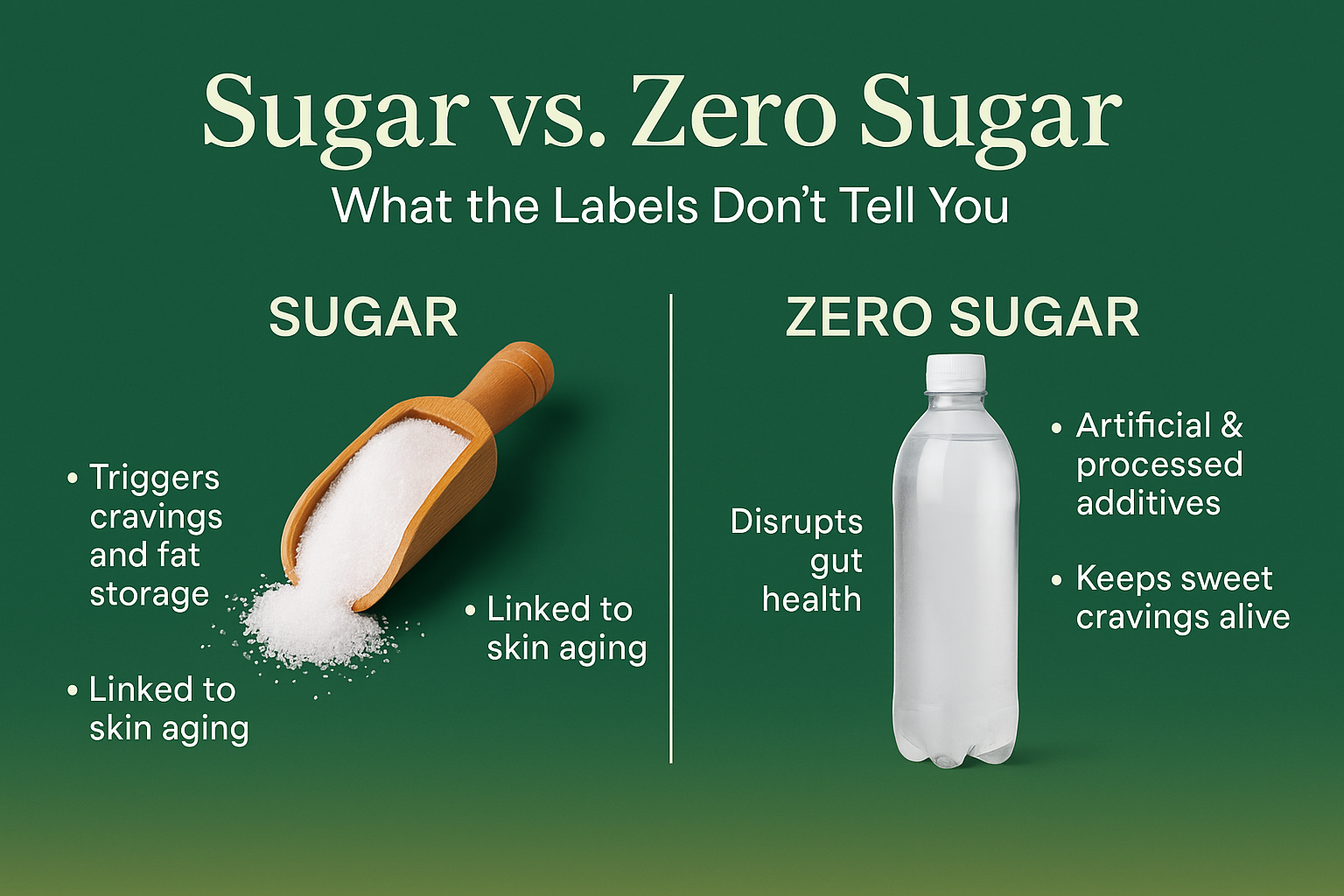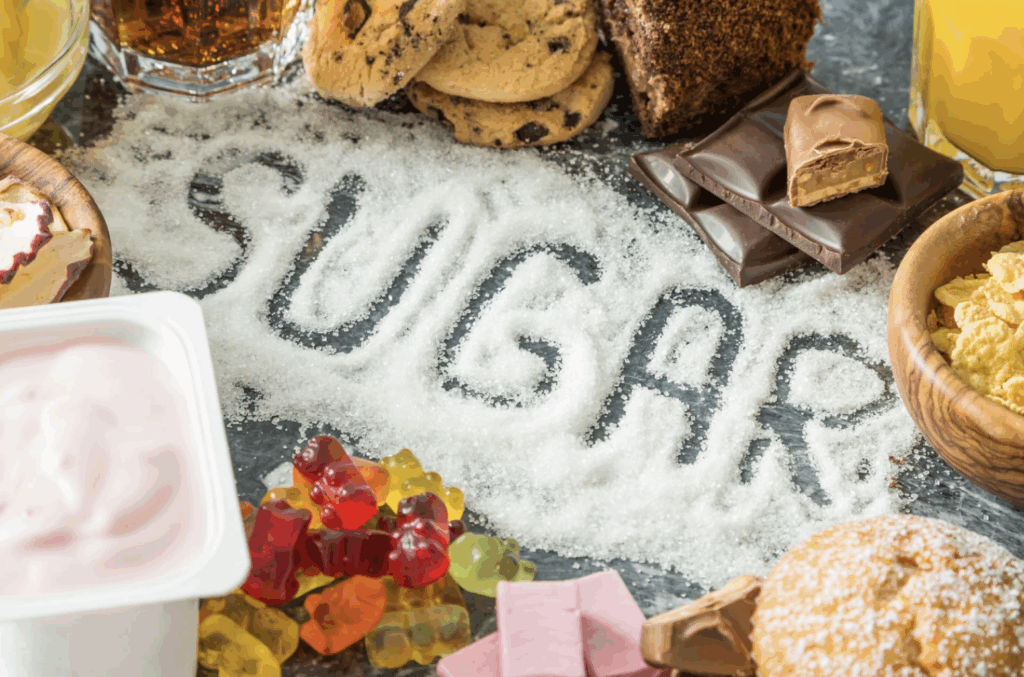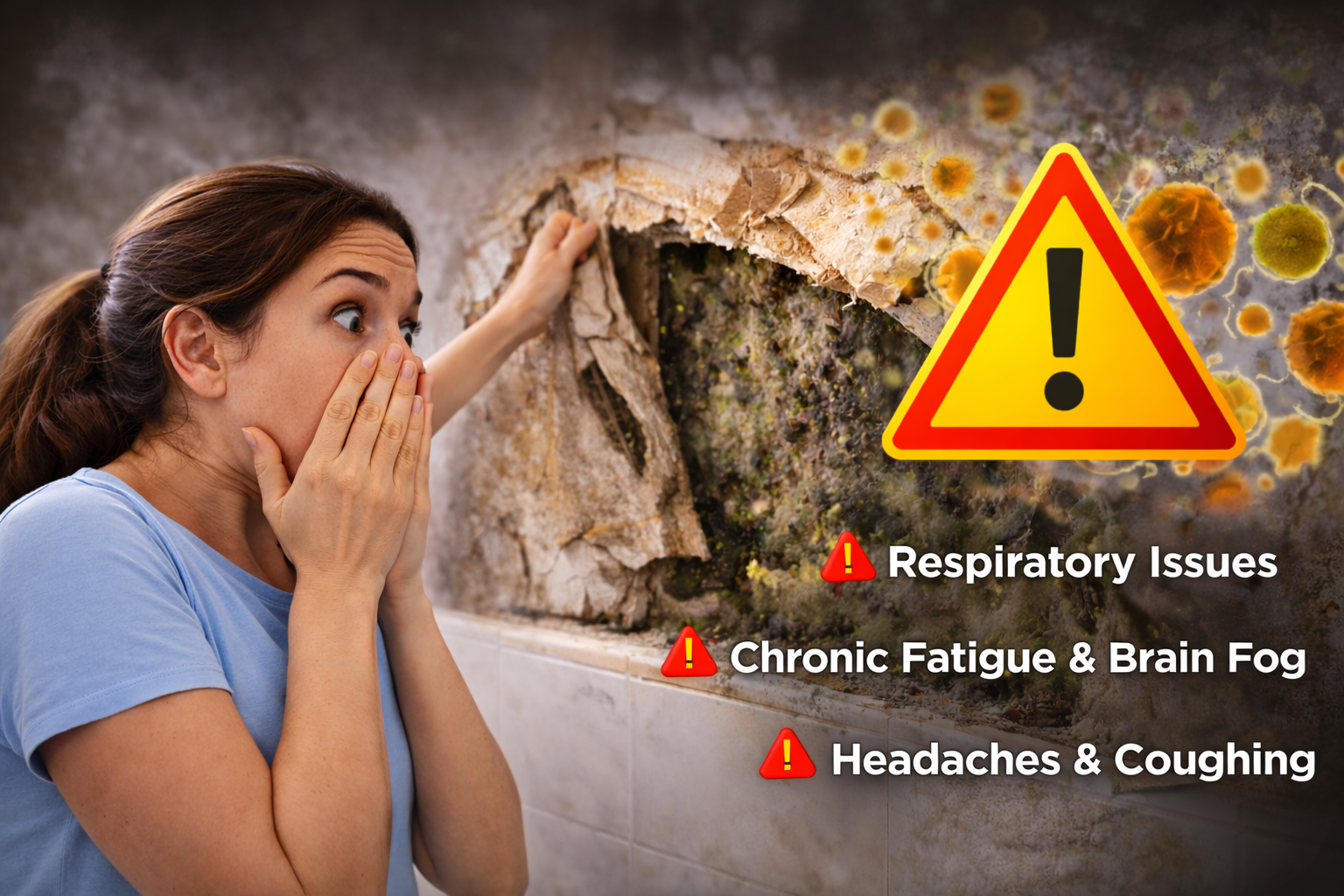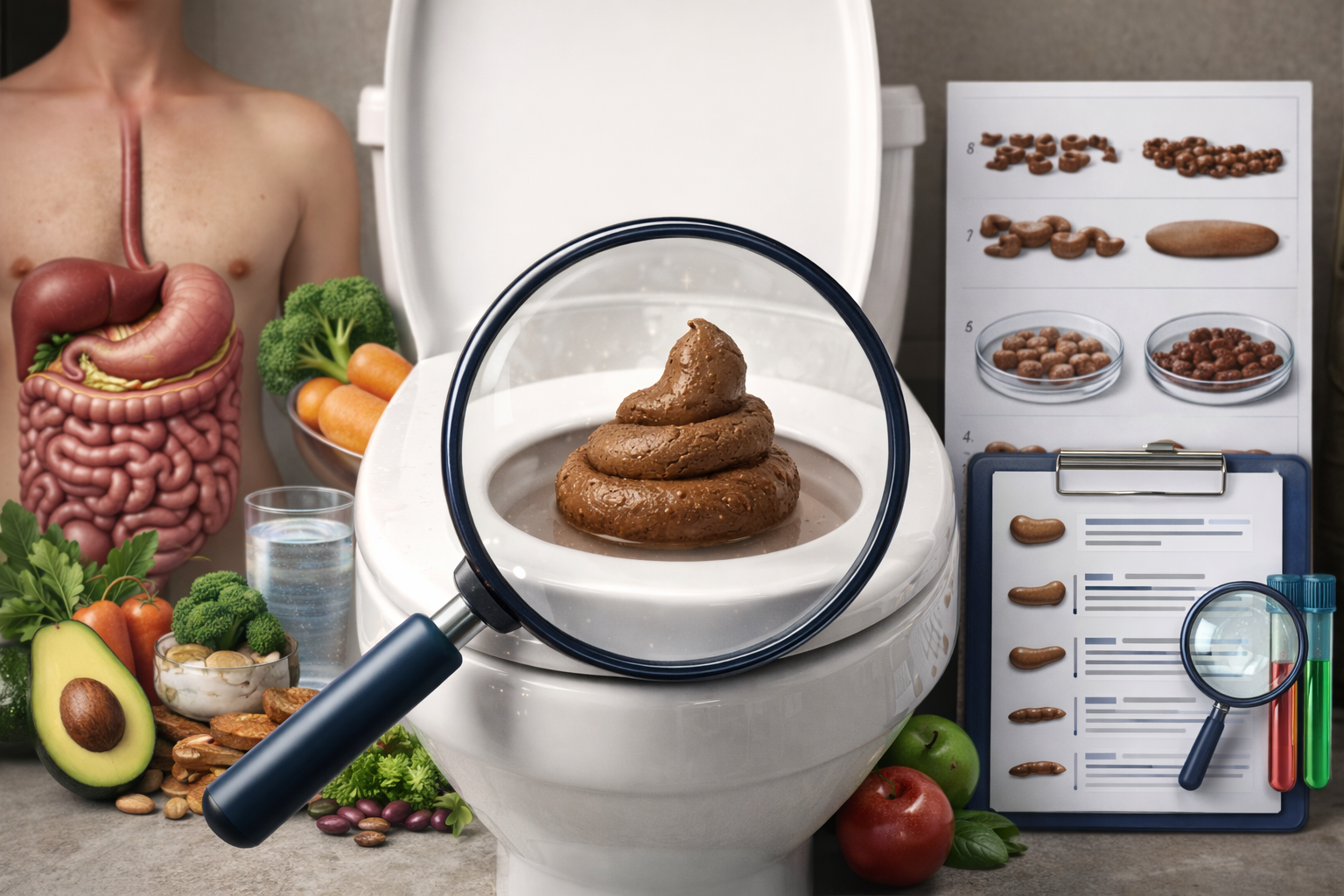You’ve probably grabbed a “zero sugar” drink thinking it’s the better choice—but what if it’s not that simple?
While cutting back on added sugar is smart, many sugar-free products come loaded with artificial sweeteners and processed additives that can confuse your metabolism, upset your digestion, and keep your cravings alive.
Here’s what really happens when you eat real sugar vs. zero sugar sweeteners—and how to make better choices that support your long-term health.

1. Real Sugar Triggers Cravings and Fat Storage
When you eat sugar—especially refined or added sugars—it causes a fast rise in blood glucose. Your body responds by releasing insulin to move that sugar into your cells for energy. But when sugar intake is frequent, it can cause your body to become less sensitive to insulin, pushing you toward fat storage and increased hunger.
Sugar also activates dopamine in your brain, reinforcing cravings and making it harder to stop. One study published in Dermato-Endocrinology found that sugar contributes to collagen breakdown and skin aging through a process called glycation [1].
2. Zero Sugar Doesn’t Mean Zero Impact
When food labels say “zero sugar,” they often contain artificial sweeteners (like sucralose or aspartame), sugar alcohols (like erythritol), or natural sweeteners (like stevia or monk fruit).
While these don’t raise blood sugar the same way, they can still affect your body in other ways:
- Trigger sweet cravings by overstimulating taste receptors
- Disrupt gut bacteria, especially with artificial sweeteners
- Cause bloating or gas, particularly with sugar alcohols
- Lead to overconsumption, since they feel “guilt-free” but keep your sweet tooth active
A review in Advances in Nutrition found that many low-calorie sweeteners can alter gut microbiota, with possible long-term effects on metabolism and inflammation [2].
3. Artificial Sweeteners Raise New Questions
Some zero sugar products use aspartame, saccharin, or sucralose—sweeteners that have been around for decades but remain controversial.
While they don’t contain calories, these synthetic sweeteners have been linked to headaches, mood changes, and potential neurological effects in sensitive individuals.
In July 2023, the World Health Organization (WHO) classified aspartame as “possibly carcinogenic to humans” (Group 2B) based on limited evidence linking it to liver cancer in humans. WHO also noted that while occasional use remains below the daily safety threshold for most people, moderation is key [3].
4. Why Cutting Back on All Sweeteners Helps Reset Your Metabolism
Whether it’s cane sugar, stevia, or erythritol—sweet-tasting foods trigger a reward response in your brain. Over time, this overstimulation can dull your taste buds and increase your tolerance for sweetness.
By cutting back on all sweeteners—even the “natural” ones—you can help reset your palate and lower your body’s demand for quick energy hits. This shift can:
- Stabilize your blood sugar throughout the day
- Reduce late-night or emotional cravings
- Improve your gut-brain signaling around hunger and fullness
- Support better sleep and hormone balance
Many people notice that after just 1–2 weeks of reduced sweetness, fruit starts tasting sweeter, cravings calm down, and digestion improves—without needing willpower.

5 Ways to Make Smarter Sweet Choices
- Read the entire label, not just the “zero sugar” claim—check for hidden additives in the ingredients list.
- Use whole sweeteners like fruit, dates, or raw honey in small amounts when possible.
- Choose gut-friendly options such as monk fruit or pure stevia—avoid blends with fillers or synthetic additives.
- Retrain your taste buds by gradually lowering sweetness levels in your diet.
- Be mindful of “guilt-free” snacks—even zero sugar options can affect digestion and appetite.
Balance Is Better Than Extreme
You don’t have to choose between sugar and zero sugar. The healthiest approach is to reduce added sugar overall, avoid ultra-sweet processed foods (even if they’re calorie-free), and nourish your body with real, minimally processed foods.
Your body knows the difference—listen to how it responds.
References:
- Schagen SK, Zampeli VA, Makrantonaki E, Zouboulis CC. Discovering the link between nutrition and skin aging. Dermatoendocrinol. 2012 Jul 1;4(3):298-307. https://pmc.ncbi.nlm.nih.gov/articles/PMC3583891/
- Conz A, Salmona M, Diomede L. Effect of Non-Nutritive Sweeteners on the Gut Microbiota. Nutrients. 2023 Apr 13;15(8):https://pubmed.ncbi.nlm.nih.gov/37111090/
- World Health Organization (WHO). (2023, July 14). Aspartame hazard and risk assessment results released. https://www.who.int/news/item/14-07-2023-aspartame-hazard-and-risk-assessment-results-released





